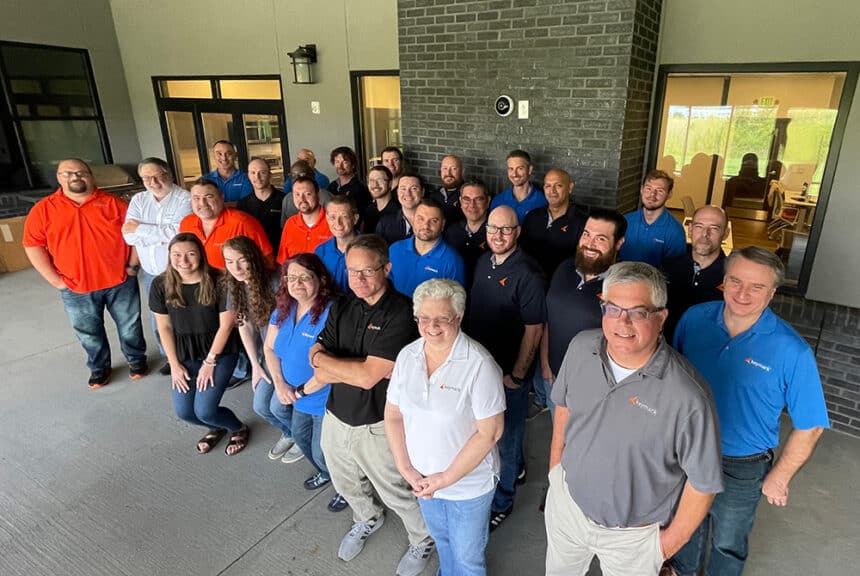In one of its recent Blue Prism Café webinars, Blue Prism tackled a question that’s on seemingly everyone’s mind today: how can we make our digital workforce more intelligent and more connected? To advance the conversation, Blue Prism brought in two partners who understand the topic well: Naresh Venkat, Head of AI Business Development and Strategic Partnerships at Google Cloud, and Vivek Khurana, Global Automation Service Lead for Pfizer. Both Venkat and Khurana are in unique positions to speak on the topic. As part of the Google and Blue Prism partnership, Venkat works directly with the Blue Prism product team and is focused on driving the adoption of AI and Intelligent Automation in the enterprise. Khurana is on the other end of the spectrum, so to speak. He’s with Pfizer, a Blue Prism customer, and he’s been leveraging and optimizing Blue Prism’s Digital Workforce in a highly regulated environment for the more than two years.
A Quick Look Back Before We Look Ahead
Last year, Blue Prism announced a partnership with Google Cloud at Blue Prism World, its annual conference. The news was celebrated among Blue Prism customers because it opened the door to a world of Intelligent Automation possibilities. The partnership represents three key initiatives. The first initiative is that it provides Blue Prism users with access to Google Cloud’s data sources in order to satisfy their “big data” needs. The second initiative is that it provides users with access to Google’s AI APIs from within Blue Prism’s Digital Exchange platform. The third initiative is that it allows users to feed data directly into Google Cloud’s machine learning engine so they can perform statistical analysis and build their own machine learning and prediction models — right from within Blue Prism. The fact that these technologies are available to Blue Prism users today was the springboard for the larger Intelligent Automation conversation.
What Is AI and Machine Learning?
Shail Khiyara, Chief Marketing and Experience Officer at Blue Prism, kicked off the conversation by asking Venkat and Khurana to define AI and machine learning in their own terms. Venkat noted that AI is an especially broad term before describing the relationship between AI and machine learning in this way:
“If you think of AI as vision, machine learning is the tools. If AI is physics, machine learning is the calculus.”
Venkat also used an illustration to make a point about how machine learning works.
“It’s kind of like teaching a kid to identify an apple. You don’t explain an apple by saying the characteristics of an apple – you just show a bunch of apples to the kid and say, ‘These are apples.’ The kid learns different things from that, and the next time you show him an apple he correlates it…That’s basically what machine learning is.”
Khurana spoke about these technologies from the perspective of having worked with them firsthand at Pfizer. He encouraged listeners to think about AI as “intelligent assistance” rather than “artificial intelligence.” He views AI as a set of capabilities that allows humans to solve complex business problems – not to replace humans but to help humans work smarter and more efficiently.
A Real-World Use Case from Pfizer
Sometimes it’s difficult to imagine exactly how companies can use these technologies without seeing real-world use cases. Khurana was able to address this challenge head-on by describing how Pfizer has used a combination of RPA and machine learning to help them overcome compliance surveillance.
“Any conversations we’re having with our customers – if there is any compliance risk associated with it – we have to report it to the FDA,” says Khurana. “That’s a very, very cumbersome task. With Blue Prism, we have been able to develop a compliance surveillance program that scans through text data to search for potential compliance risks and prioritizes the risks based on the risk level. This helps us in not only reducing the amount of effort we’re spending but also in focusing on the higher priority ones first.”
Pfizer is also using Intelligent Automation to understand whether or not individuals who take one of their smoking cessation drugs have actually completed their prescription.
“It’s hard for us right now to analyze and understand whether a person has taken a complete prescription, so we’re using automation and machine learning to gather more information and insights around that. It’s a very valuable tool for us, and it impacts our top-line as well.”
How Does RPA Fit Into the Bigger Intelligent Automation Picture?
Part of the conversation had to do with how process automation is constantly evolving and getting smarter. As companies find new ways to automate their routine and non-routine tasks, they’re also shifting their thinking from a pure rule-based, decision-making automation to more advanced judgment and self-learning Intelligent Automation. So how does RPA fit into all of it? According to Venkat,
“RPA is like the glue that holds all of it together because you are trying to automate a process end-to-end.” Blue Prism’s Khiyara agrees. “In talking with many customers who have deployed RPA or are looking at Intelligent Automation…they find RPA to be the fundamental fountainhead, sort of the center of gravity, to capture the data that they have been unable to capture because the connections don’t exist between the disparate systems within their organization.”
Where Do We Go From Here?
After answering several questions from webinar participants, the conversation turned to final thoughts and recommendations from Venkat and Khurana. Venkat encouraged listeners to take a stab at using the Intelligent Automation tools that are already available through Blue Prism – things like machine learning, natural language understanding and much more.
“You’ve got nothing to lose – try them out.”
Khurana agreed and recommended that users start with a simple use case for starters. His thinking: deliver strong results on a simple use case, then scale up to more complex business challenges. He also suggested the idea that users could build their confidence by trying a proof of concept first or by leveraging an attended bot to ensure that human review was part of the workflow. When asked how and why Pfizer selected Blue Prism as their RPA partner, Khurana responded by saying,
“We went through a detailed process of selecting Blue Prism as our vendor…We were looking for an enterprise-scale platform that could be managed in a regulatory environment with all of the audit controls we needed. We got tremendous support from Blue Prism and our partner while doing the install.”
Of course, in addition to selecting the right vendor, we believe it’s important to select the right partner – someone who can help you see the bigger Intelligent Automation picture and look for ways to automate and streamline processes across your entire organization. Need a few real-world examples of how we could help boost productivity for your company or agency? Contact us today to start the conversation.
The above article summarizes a Blue Prism Café webinar hosted on July 10, 2018. In some cases, we have lightly copyedited the quotes from Venkat, Khurana and Khiyara for the sake of efficiency and clarity. The complete webinar can be found here. [https://www.blueprism.com/resources/webinars/creating-an-intelligent-and-connected-digital-workforce/]
Take the Next Step
We can help you decide pretty quickly whether this would be a good fit for your organization. With 20+ years of experience in automation, we just need about 5 minutes of Q&A.



